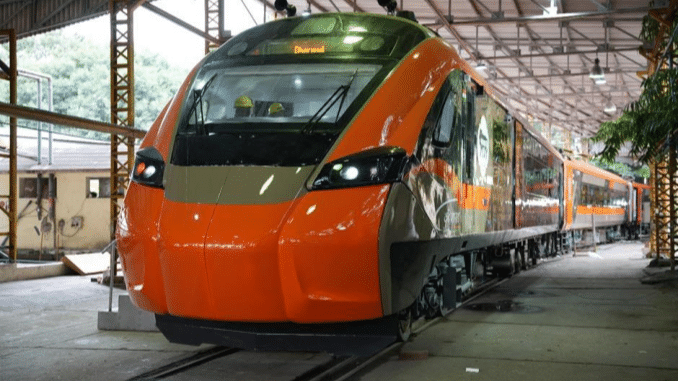India’s First Bullet Train: A New Era in Rail Travel

India is on the brink of a significant transformation in its rail travel system. The country is finalizing the design specifications for its first bullet train, which will operate on the Mumbai-Ahmedabad High-Speed Rail (MAHSR) Corridor. This ambitious project is a collaboration between India and Japan, aiming to enhance the speed and efficiency of rail travel in the country. With the design nearing completion, the focus now shifts to the construction and manufacturing aspects that will bring this vision to life.
Finalizing the Design Specifications
The design of India’s first bullet train is based on Japan’s renowned Shinkansen trains. However, modifications are necessary to adapt these trains to Indian conditions. The new designs will feature enhanced luggage capacity and the ability to operate in extreme temperatures, exceeding 50 degrees Celsius. Additionally, the trains will be equipped to handle the dust and environmental conditions prevalent in India.
A senior official involved in the project stated, “These designs are expected to be formally approved soon.” Changes to the seating arrangement are also being considered, potentially resulting in fewer seats per coach compared to the original design. This adjustment aims to provide passengers with more comfort during their journeys. As the design phase concludes, the focus will shift to the tender process, which is crucial for the project’s advancement.
Progress on the MAHSR Corridor
The construction of the MAHSR corridor is progressing rapidly, with civil works now over 50% complete across Gujarat, Maharashtra, and Dadra and Nagar Haveli. Recently, rail welding operations commenced on the viaducts in Gujarat, marking a significant milestone in the project. An official statement revealed that over 60 kilometers of Japanese-sourced rails have already been installed.
In addition to the ongoing construction, Indian Railways is also working on developing domestic manufacturing capabilities for bullet trains and signaling systems. This initiative aims to reduce reliance on imports from Japan while ensuring that the trains meet the high-speed standards set globally. High-speed trains like the French TGV and Japanese Shinkansen typically operate at speeds exceeding 250 km/h, and India aims to achieve similar benchmarks.
Manufacturing Capabilities and Future Plans
The Integral Coach Factory (ICF) has received directives from the Railway Board to produce bullet trains capable of reaching speeds of 280 km/h. This ambitious project involves collaboration with BEML, with a total project cost estimated at Rs 866.87 crore. Each coach is expected to cost around Rs 27.86 crore, which includes design expenses, development costs, and infrastructure for testing.
BEML plans to manufacture these trainsets at its facility in Bengaluru, with deliveries scheduled by 2026. The bullet trains will feature modern amenities, including fully air-conditioned compartments, adjustable reclining seats, and entertainment systems. Additionally, provisions for passengers with mobility challenges will be incorporated, ensuring that the trains are accessible to all.
Observer Voice is the one stop site for National, International news, Sports, Editor’s Choice, Art/culture contents, Quotes and much more. We also cover historical contents. Historical contents includes World History, Indian History, and what happened today. The website also covers Entertainment across the India and World.

